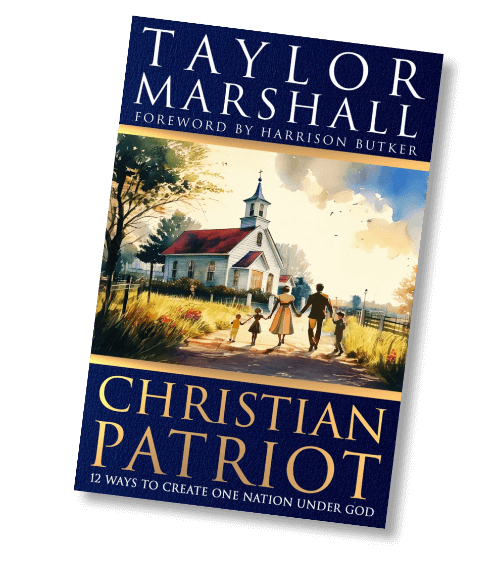Thoughts after Reading Benedict XVI’s New Book

I finished Pope Benedict’s new book Jesus of Nazareth yesterday while riding home on the D.C. metro. I cannot recommend it highly enough. Anyone interested in biblical theology, Protestant or Catholic, should read this book. His treatment of the Beatitudes is beautiful. I especially like how handles the “hard words” of Beatitudes, e.g. “Woe to those laugh; are full; are rich, etc.”
By far the most interesting sectoin of the book is his interaction with Rabbi Jacob Neusner’s A Rabbi Talks to Jesus. I remember reading Neusner’s book in Dr. Steve Taylor’s class at Westminster Theological Seminary. Rabbi Neusner takes for granted that the canonical Gospel accounts are historical and he places himself, as a rabbi, into the first century crowds as they listen to the words of Rabbi Jesus of Nazareth. Rabbi Neusner explains the significance of what Christ is saying from a Jewish point of view, and then goes on to explain why he as a rabbi cannot accept the teachings of Christ as authentically Jewish. It is a challenging book for a Christian to read, but I found the book to be a wonderful way of appreciating the radical message of Christ.
Pope Benedict closely examines three of Rabbi Neusner’s objections. The first is that Jesus is not subtracting elements from the Torah, but that he is adding something. Rabbi Neusner explains that the addition amounts to Christ’s very person. “Christ added only Himself.” Neusner rightly sees this claim of Christ as Christ making Himself identical to the Torah. Following the Torah becomes following Jesus. This should not alarm Christian, because we believe that Christ is the Word made flesh. He is the incarnate Will of God for mankind. We could say that Christ is the Torah made flesh.
The second objection of Neusner relates to the Sabbath. In a provocative passage, Neusner sees what most Christians miss. Neusner believes that Christ’s words about the Sabbath seem blasphemous because Christ identifies the work of God with the work of Himself. Christ is “Lord of the Sabbath” which can only mean that He is the Lord of Creation. Again, a profound observation that further substantiates what Christians already believe.
The third objection of Rabbi Neusner relates to Christ’s disruption of the human family. Neusner believes that Christ’s words about “dividing” families and his esoteric statement about his mother and brothers, “My mother and my brothers are those who hear the word of God and do it” (Lk 18:21), ultimately overturn the commandment to “honor thy father and thy mother.” The Holy Father picks up on this and uses it to show that Christ’s divine and eternal sonship reconfigures the meaning of human family, since God is revealed as “Our Father.” Christ does not obliterate the natural family, but He does open the way for the formation of a supernatural family.
Chapter Nine on the Confession of Peter and the Keys of the Kingdom are amazing, especially as it is written from the perspective of a living pope. There is something special that floats off the page as you read the Holy Father dicuss the origin of Petrine office.
Well, I don’t want to spoil it for you. Buy the book and read it. It’s a jewel.
What to Watch Next
SHOP THE TAYLOR MARSHALL STORE
Dive Deeper

GET CONFIDENT IN YOUR FAITH
Explore the fascinating world of Catholic teachings with Dr. Marshall. Together you’ll unpack the brilliant answers the Church gives to tough questions about the Faith. The best part: you go at your own pace. Start this exciting journey today.


 >
>



